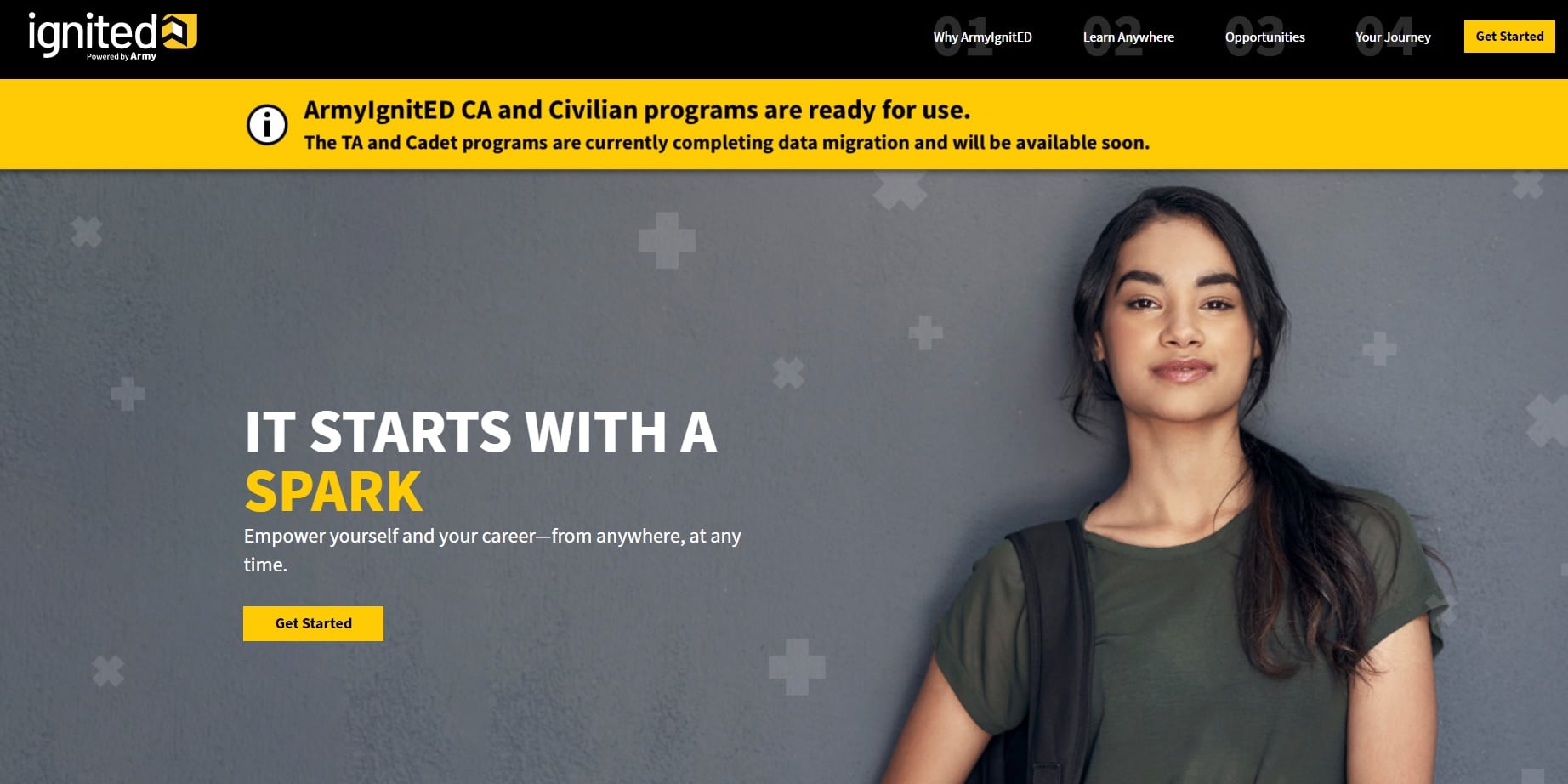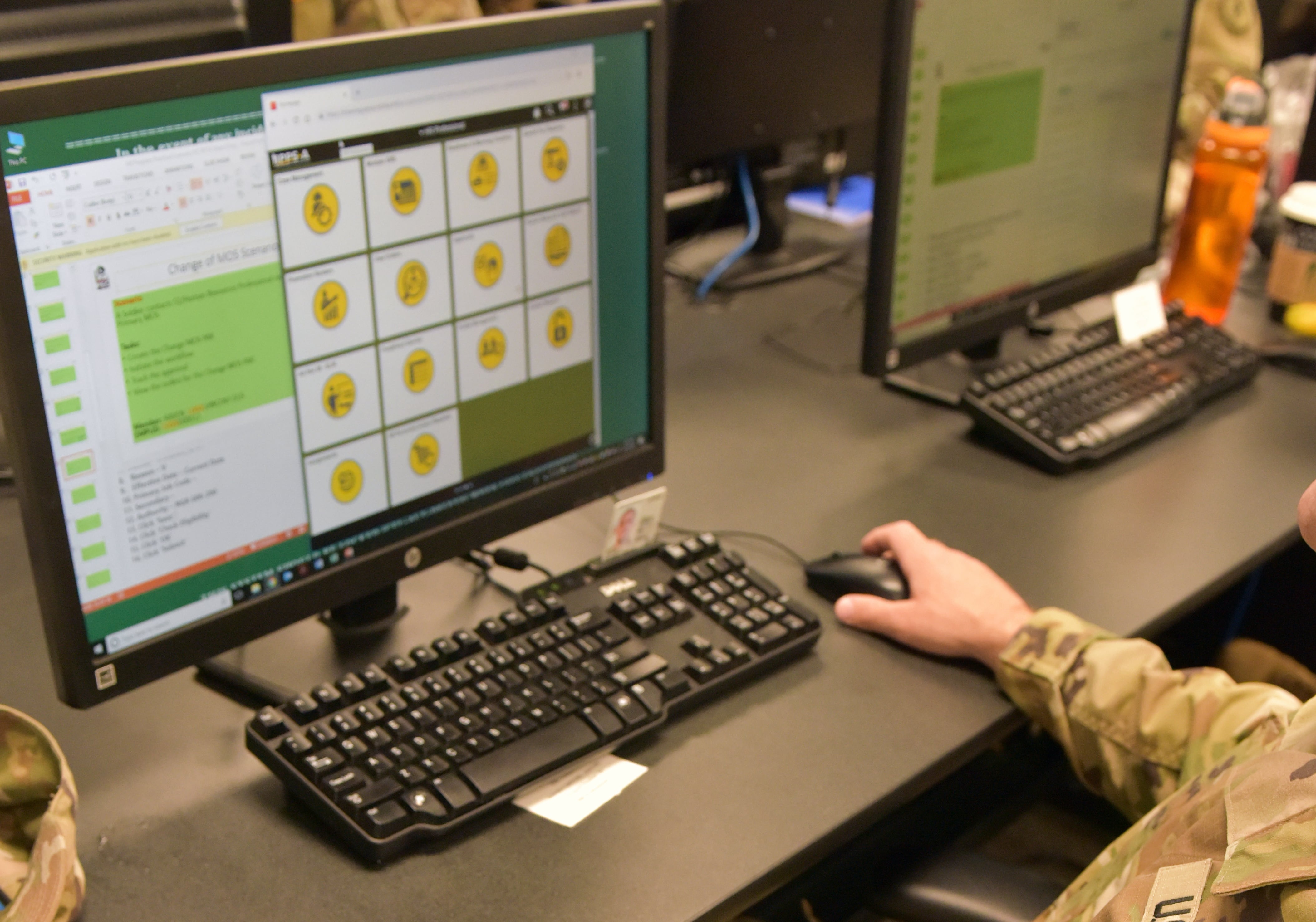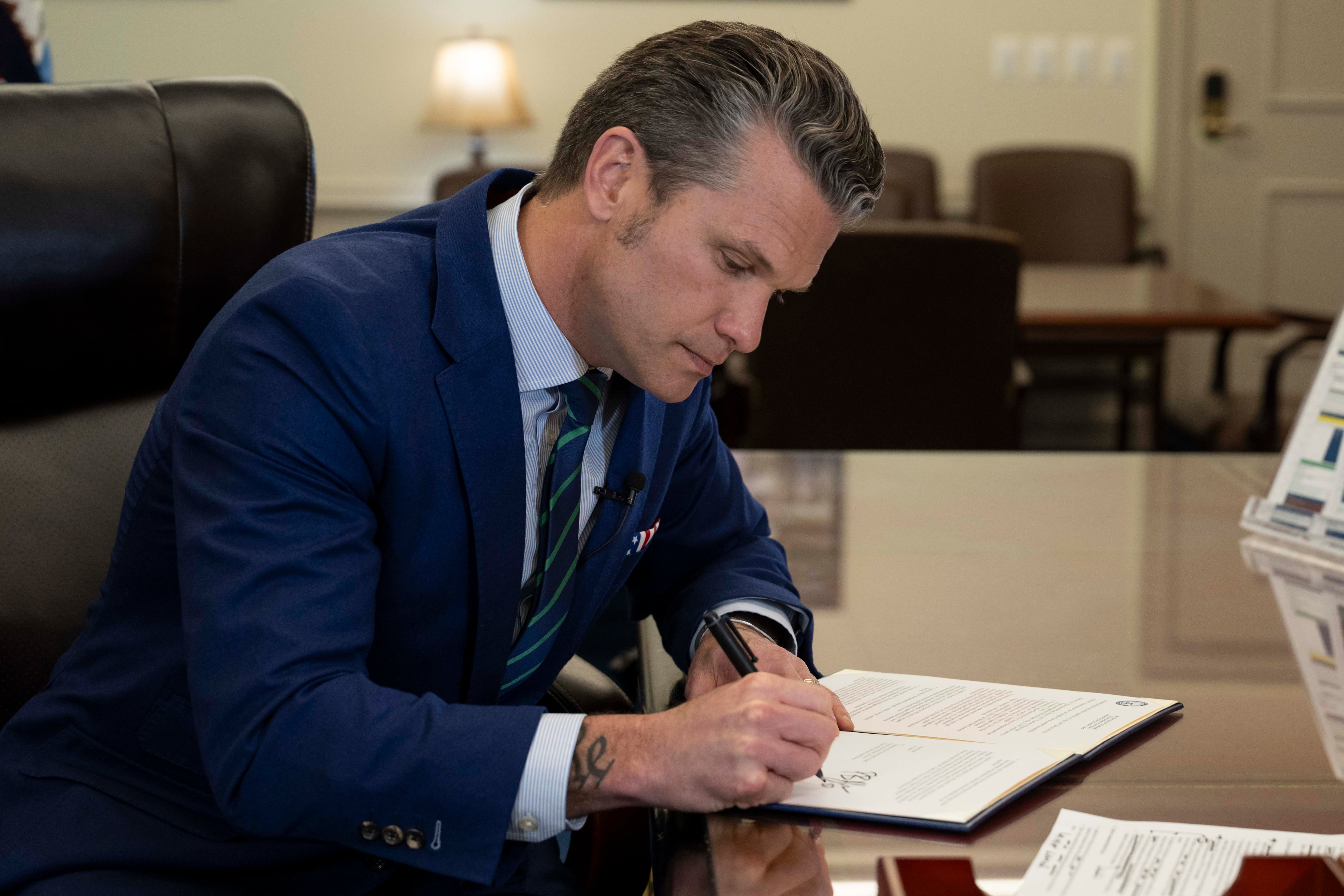WASHINGTON — The Army’s top leadership weighed in on a recent series of high-profile failures plaguing its information technology efforts at an Oct. 11 press conference held amid the Association of the U.S. Army’s annual meeting.
This summer, the service rushed the rollout of its new tuition assistance platform, called Army IgnitED. The botched rollout saw many soldiers unable to utilize their education benefits. It led to a desperate administrative scramble to ensure that tuition bills were paid after some soldiers had to cover their costs out-of-pocket.
The site, designed by Deloitte, still isn’t 100 percent functional, and some soldiers are still awaiting reimbursements or payments.
The Army also recently announced it was delaying the launch of the much-hailed Integrated Personnel and Pay System-Army, the service’s long-awaited “21st century” human resources platform.
Army senior leaders have said for years that IPPS-A will take the service from an “industrial-era” HR and talent management system to a much more modern platform, aligned with the practices of large civilian corporations.
RELATED

A version of IPPS-A is currently in place for the National Guard.
But another version of the platform, for which CACI is the contractor, failed key system acceptance tests during the summer, and Army officials announced last week that the program will not go live for the Army Reserve and active-duty force in December 2021, as was planned. Instead, it will be delayed until September 2022 in order to make time for another round of testing.
Army Secretary Christine Wormuth acknowledged that the service has had “some challenges with the online tuition [assistance platform]” during the press conference.
“Frankly, in part because of that experience, as well as the lessons learned from that experience, when we looked at where IPPS-A was, we made the decision that it was better to delay the rollout of that so that we can make absolutely sure that the system was going to work when it actually does go live,” Wormuth said.
The service’s top civilian leader also said that “we’re trying to have a lot of oversight of these efforts...so we really want to make sure that when IPPS-A goes out, that it will work well.”
The Army’s chief of staff and senior enlisted leader each stressed the importance of ongoing efforts in ensuring that the IPPS-A rollout won’t be delayed any longer.
“[IPPS-A], that is a transformational system that we absolutely have to have if we’re ever going to move from an industrial age system to a 21st century talent management system,” said Gen. James McConville. “It’s being overseen by the acting undersecretary [Christopher Lowman] and vice chief [of staff, Gen. Joseph Martin]...Myself and the secretary routinely take briefs on IPPS-A.”
“We’re going to make sure that it is done successfully,” McConville added. “And even as we start to field that system, we’re going to have pauses along the way to make sure it’s actually working, which is a little different [than what we did] with the tuition assistance system.”
Among other things, the Army needs to better employ tech-savvy troops, said Sergeant Major of the Army Michael Grinston.
“We definitely had a lot of [lessons to be learned] from Army IgnitED,” said Grinston.
One of those lessons is that the Army needs to better identify and utilize troops with expertise in coding and building online platforms, he explained.
He pointed to the nascent Army Software Factory as one such initiative to increase “soldier touchpoints” where troops with technical knowledge and a practical understanding of what service members need can get their hands on programs.
Wormuth also said that the Army will continue to “find ways to give soldiers some mitigation” should the IT modernization initiatives continue to falter.
Other technology transitions are approaching, as well.
One such possible looming technical issue for the force is the service’s transition from its current enterprise email service to Office 365 mail services.
Davis Winkie covers the Army for Military Times. He studied history at Vanderbilt and UNC-Chapel Hill, and served five years in the Army Guard. His investigations earned the Society of Professional Journalists' 2023 Sunshine Award and consecutive Military Reporters and Editors honors, among others. Davis was also a 2022 Livingston Awards finalist.





